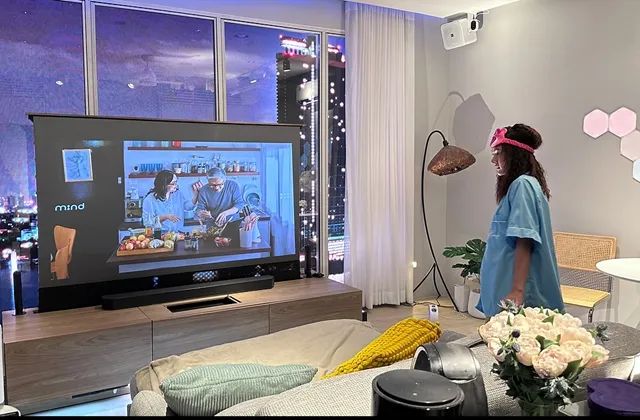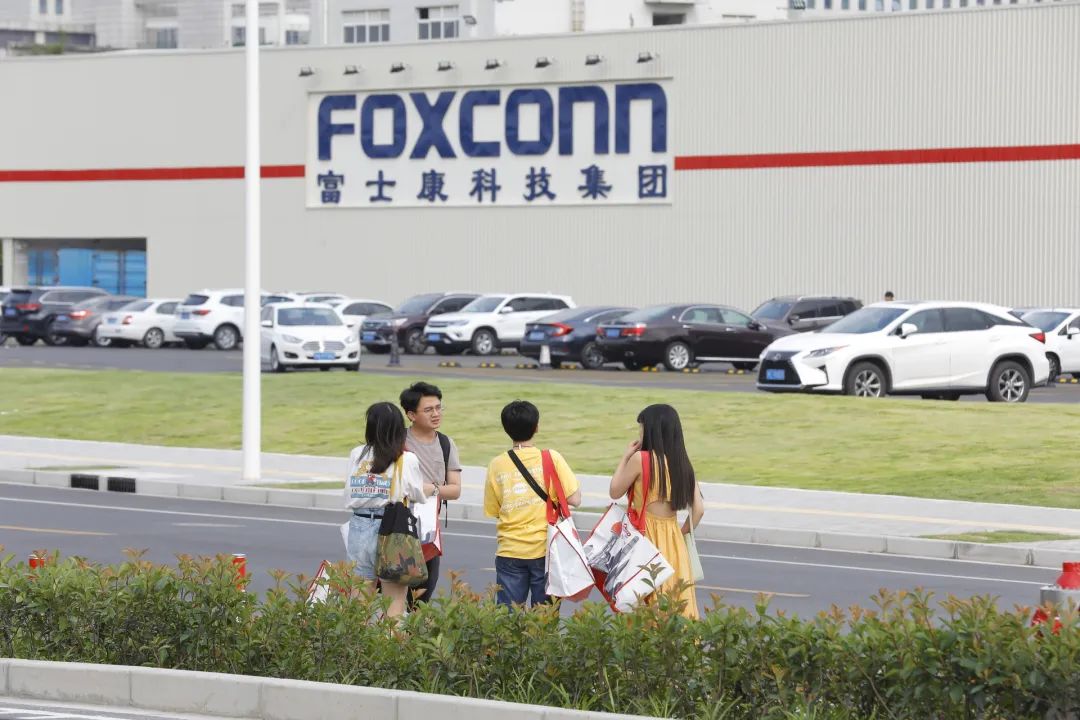2023.11.01

Word count: 2606, estimated reading time: about 4 minutes
Introduction: Young consumers with a strong acceptance of new things are the main force in the consumption of smart home products. Coupled with the popularity of smartphones and the improvement of internet infrastructure, this will undoubtedly drive the development of the IoT industry.
Author | Lu Qian, Yicai Global
Domestic manufacturers have been aggressively promoting smart speakers to expand smart home scenarios, and this hustle seems like it was just yesterday. Today, the Southeast Asian smart home market is quietly growing, becoming a key focus for their layout.
Mr. Yan (pseudonym) has recently traveled to Thailand multiple times for tourism or business. He believes that Thailand’s telecommunications network is developing rapidly, and using mobile phones and broadband internet here is very smooth, with speeds “not much different from those in domestic cities.”
It is precisely because Thailand has a good network infrastructure that local consumers are gradually beginning to adapt to health monitoring through smart wristbands, bringing smart home products into their daily lives.
Thanks to years of policy support from the Thai government, the IoT industry in Thailand is developing rapidly. A survey by the Asian IoT business platform shows that 89% of Thai companies are exploring or implementing IoT solutions, ranking first in Southeast Asia. Thailand has become a pioneer in ASEAN in exploring and implementing IoT solutions to improve productivity and innovation capabilities.
Zheng Fang, the Asia-Pacific Sales Director of Tuya Smart, told Yicai Global that unlike the domestic market, which requires subsidies for popular education, Thai consumers have a basic understanding of IoT. Currently, the main challenge for industry development is still consumer purchasing power.


The Young Market Holds Great Potential
Songbo Manalanshan, Dean of the College of Management at Chulalongkorn University, recently stated in a media interview that in recent years, Chinese companies have been continuously expanding their investment and factory construction in Thailand, promoting the development of Thailand’s electronics and new energy vehicle industries. Chinese products are increasingly favored by Thai consumers. He believes that in the future, China and Thailand can actively expand cooperation in green industries, healthcare, and high-tech services.
Compared to the overall development of the smart home and small appliance industries in Southeast Asia, Thailand is still in its infancy. Market research firm Statista reports that the Southeast Asian small appliance market has grown rapidly, with the e-commerce scale in Southeast Asia increasing from $24.2 billion in 2017 to $102.5 billion in 2022. Meanwhile, with the rapid development of the internet and the increase in application scenarios, smart homes are gradually replacing traditional homes. In 2022, the demand for small appliances reached nearly 250 million units, with Indonesia holding the largest share.
Based on this foundation and trend, Tuya Smart (NYSE: TUYA, HKEX: 2391) has chosen to layout smart homes in Southeast Asia.
Lu Zhijun, General Manager of Tuya Smart Asia-Pacific, stated that Southeast Asia has a population of over 650 million, with a low average age; 33.8% of the population is under 20 years old. Young people, who are quick to accept new things, are the main consumers of smart home products. Coupled with the popularity of smartphones and the improvement of internet infrastructure, the rapid development of mobile internet will also drive the growth of the IoT industry.
Currently, Xiaomi is a major player in Thailand’s smart home retail market.
On August 24, 2017, Xiaomi Group announced its official entry into Thailand in partnership with sales partner VST ECS (Thailand). At that time, Xiaomi executives stated that Thailand, as an important country in Asia, is a key market for Xiaomi. Subsequently, Xiaomi opened its first authorized store in Thailand to sell ecological chain products.
In Thailand, Tuya has chosen to collaborate with real estate developers and telecommunications equipment manufacturers to implement its products, such as T3 Technology Co. Ltd. (referred to as “T3”) and SCG, the former being a telecommunications solution provider in Southeast Asia and the latter being a well-known commercial group in the ASEAN region for its cement and building materials business.
For example, through cooperation with T3, utilizing Tuya’s complete IoT ecosystem, T3 Technology will launch IoT products and services in Thailand, Vietnam, Malaysia, Indonesia, and the Philippines. The two parties will collaborate on smart hardware, application development, and cloud platform development to help T3 optimize its technology and marketing channels.
Kevin Guo, Deputy CEO of T3 Technology, stated that a fast and complete network infrastructure is necessary to ensure the smooth operation of the IoT smart home ecosystem.
However, Kevin Guo told reporters that Tuya and T3 adopt different business models, mainly implementing B2B2C and B2C models, which offer better cost performance.
T3 is investing more resources into distributors, including operators, as distribution channels account for a significant portion of the company’s sales. This year, T3 opened its first offline official retail store. In the IoT market, offline retail dominates; although e-commerce saw slight growth during the pandemic, about 70% of T3’s IoT market remains in the offline sector, and it is expected that offline channels will account for 80% of Thailand’s IoT market in the future.
Thai company SCG launched the “Mind” smart home brand in 2022, providing Thai households with an integrated connection kit that includes smart lighting, security cameras, and an audio system controlled through a single application interface, as well as smart health products like watches.
Apirut Vancha-am, Chief Digital Officer of SCG, told Yicai Global that the group is ready to continue expanding, with 20,000 to 30,000 homes needing to install related equipment. Next year, SCG plans to install equipment in about 100,000 homes in Thailand, including various types such as houses, townhouses, detached houses, and apartments.
Lu Zhijun told reporters that from the perspective of IoT shipment volume and market coverage, Tuya currently holds over 50% market share in Thailand.

Addressing the “Fragmentation” Issue
Regarding the smart home industry, Apirut Vancha-am told reporters that currently only a small portion of the population in Thailand uses smart home devices. Most are DIY users, and consumers have not truly experienced the benefits of smart homes, which is one of the points SCG hopes to change by investing in this industry.
He also mentioned that more and more people are starting to wear smart wristbands or watches, as Thais are becoming more health-conscious, especially after the COVID-19 pandemic.
In the implementation process, the smart home industry still faces certain challenges. Lu Zhijun believes that customer awareness is a major barrier to the development of IoT in the region. Early IoT users were mainly professionals and engineers, and market education is crucial for expanding the market.
Additionally, cost is another challenge, as there is a significant price difference between traditional devices and smart devices, which means Thai consumers may delay purchasing related devices due to price issues. A favorable point is that Thai consumers are accustomed to spending in advance rather than saving long-term, which also provides a key boost for the expansion of IoT in the Thai market.
Apirut Vancha-am told Yicai Global that the current difficulty is the “fragmentation” issue, with too many brands and standards in the industry, and they often do not communicate with each other. Most brands want to have their own ecosystem platform, which means there are more opportunities for the Matter protocol in the future.
The so-called Matter protocol was initially initiated by Amazon, Apple, Google, and the Connectivity Standards Alliance (CSA, formerly known as the Zigbee Alliance). It is a connection standard for smart home devices that can improve interoperability between devices from different brands. The Matter protocol has attracted the participation of giants like Google, Apple, and Amazon.
Currently, smart home brands in the industry are divided into two paths: building their own ecosystems and connecting platforms, with the former including Xiaomi and Huawei, and the latter including Tuya Smart. Previously, IDC China Director Pan Xuefei stated that the Matter protocol has not yet fully landed in the domestic market. The domestic smart home market is also seeking to establish its own standards for smart home interoperability. The promotion of Matter also requires support from the domestic market. Although some leading manufacturers have expressed willingness to join, the overall promotion and implementation of the protocol is still relatively slow.
Compared to overseas markets, Pan Xuefei believes that the domestic smart home ecosystem, including terminal consumption, is actually more fragmented, and this “decentralization” also poses challenges for the universality of smart home devices.
Regarding the expansion of Chinese manufacturers in overseas markets, Pan Xuefei stated that joining the Matter protocol is the first choice for small and medium-sized companies, especially those providing whole-home smart solutions like Aqara and ORVIBO. Some relatively smaller manufacturers may be more willing to promote the Matter protocol, hoping to further bridge the gap with mature manufacturers that have already connected to Apple’s HomeKit platform, while also attracting more Apple users.
WeChat Editor | Li ZaoRecommended Reading
Breaking News: Stock Limit! Foxconn’s Parent Company Responds


